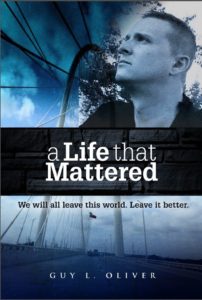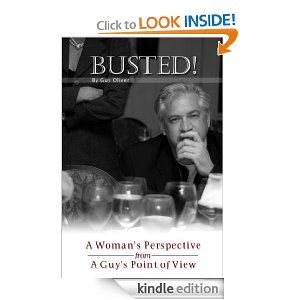In this moment, as I contemplate the life my son lived in his teens and twenties, I can think of only lost potential. He was nothing, if not charming, and his charm was driven by the genuine love no one taught him to have. It was a love, almost divine—a selfless, genuine kind of love that demanded nothing in return, and people were drawn to it.
The sticking point, I learned, is that charm is the twin sister of manipulation. Both come attractively packaged, appealing to the eye and ear and can be difficult at times to distinguish. When people are drawn to you, you have the power to get what you want from them without giving anything in return other than your attention—and this is heady wine.
There were times when I wanted to say to him
“You’ve been given a powerful talent. What will you do with it? Will you use it to draw people with resources and opportunities to yourself and in turn use those things to help others, or will you instead exploit those things for your own perceived benefit? I would prefer you choose the former, but if you must, I will not judge you for choosing the latter. Above all, please stop using it to mark time in the never ending mire of vice.”
But this is what the parent not trapped in the vice of addiction says. And the addict hears only the call of alcohol, meth, crack, or heroin. Your voice has been muted. And you know that. And you remain silent. And in the end, even though you know that your voice would not have been heard, you still wish you had given the words voice. It is, sadly, the currency of false hope and wishful retrospection.
We all, each of us, live our lives with potential. We all have things we do well and capabilities that can serve the world and leave it better than we found it. The unfortunate fact of potential is that this energy, this opportunity, this resource, unreleased is like an automobile with a tank full of fuel that is never driven.
To put a finer point on it, in Tim’s case, during this part of his life, he started the engine but never put the transmission in gear. He instead turned on the stereo and listened to the music. He had the key to visit far off destinations he never saw, to experience the roadway of life he never knew, to meet people who would enrich his life but who never knew him. He simply listened to the music as he sat in the driveway, never imagining anything more was possible.
I imagined so much more for him than that. I imagined a college education. An immersion in the arts, language, science, math, philosophy. Things that would open his mind to a world alien to him.
“We don’t read and write poetry because it’s cute. We read and write poetry because we are members of the human race. And the human race is filled with passion. Medicine, law, business, engineering, these are all noble pursuits, and necessary to sustain life. But poetry, beauty, romance, love, these are what we stay alive for. To quote from Whitman: “O me, o life of the questions of these recurring, of the endless trains of the faithless, of cities filled with the foolish. What good amid these, o me, o life? Answer: that you are here. That life exists, and identity. That the powerful play goes on, and you may contribute a verse.
What will your verse be?”
John Keating – Dead Poet’s Society
What will your verse be?
Like every parent, in the beginning, I imagined Tim’s verse would be something grand—something wonderful. Indeed, the more I saw of him and learned of who he was as I watched him grow from an infant, the more optimistic I became.
From these seeds of optimism I fashioned my own vision of the man my son would become. I didn’t imagine a great man—but I did imagine a good man who would see the value and goodness in everyone.
I imagined that as he grew to understand the world around him he would use whatever he decided to do with his life to contribute to the lives of others. That he would integrate passion with compassion and a love of vocation with a love of individuals that life brought to him. That he would use that passion and love of what he did in his day-to-day to make life possible, to nourish in others the things we stay alive for.
A banker can provide a mortgage and a carpenter can provide a structure so that a family may have a home. An engineer can design devices to improve communication so that friends and family may feel close across great distances. An artist can portray beauty in the world around us so that we may feel connected to each other. A writer can articulate thoughts we have but that heretofore remained unexpressed so that we may better understand ourselves and each other.
People with talent and discipline are capable of all this and, in the end, Tim was such a man, but addiction begets sloth and sloth inhibits forward movement. Inertia sets in and the addict finds himself on a treadmill walking to nowhere and the verse he was meant to write and to sing finds no voice.
It would be many years before Tim would begin to write his verse but as it took form it was a wonderful thing of beauty. Forged from self-imposed hardship and his collision with an unyielding world, the verse he composed spoke to the importance of love, compassion, and a sense that a better world and the welfare of his fellow man were his obligation.
These were things he ultimately learned from his own privation. They were personal to him because they were lacking in his life during his storm that lasted more than a decade and because it organically resided in his make-up—albeit dormant during that time. Further, because they were personal, they became his faith, his religion, his reason for being.
These things became his verse. In the end, my son chose to serve others with humility.
What will your verse be?


